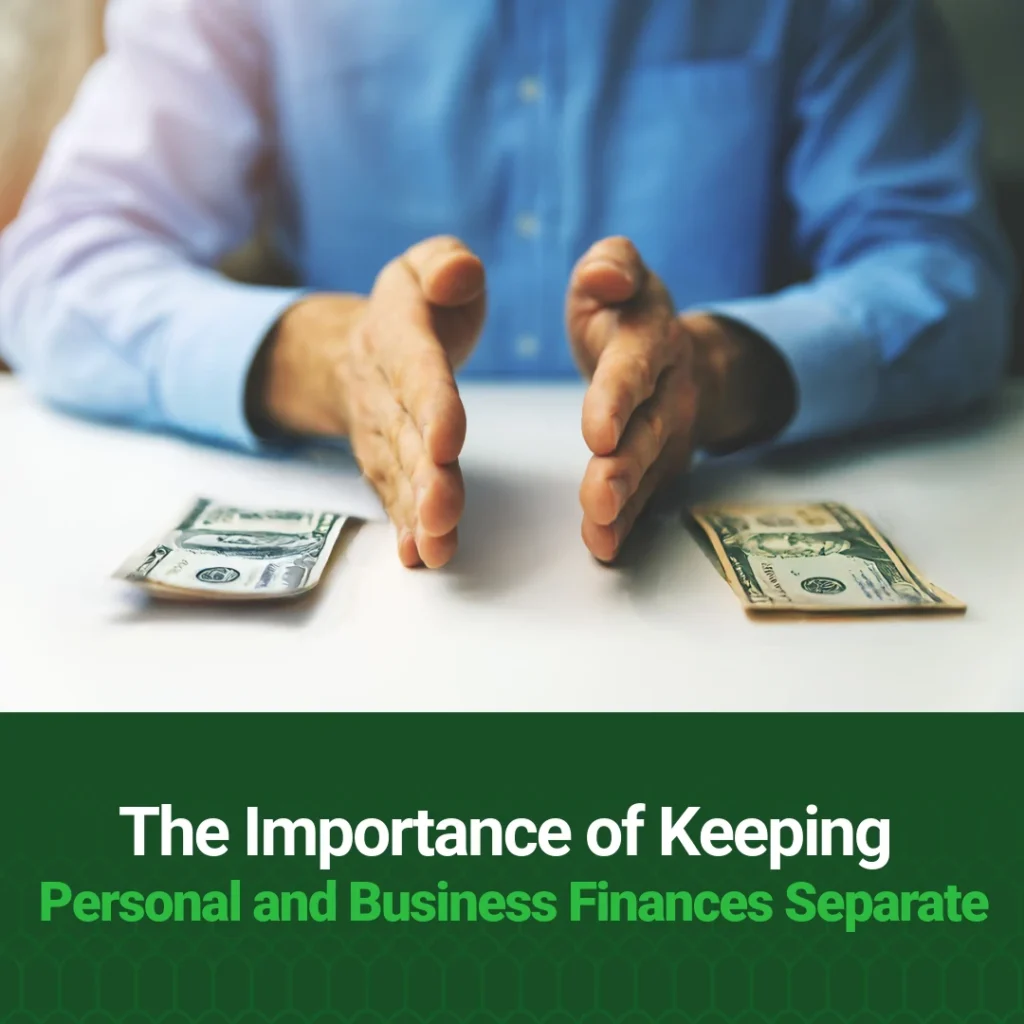
The Importance of Keeping Personal and Business Finances Separate
Running a business is exciting, but many entrepreneurs fall into a costly trap—mixing personal and business finances. At first, using your personal bank account for business expenses might seem convenient, but over time, this can create financial chaos, tax headaches, and even legal risks.
The reality? Keeping your business and personal finances separate is non-negotiable if you want to protect your assets, simplify accounting, and position your business for long-term success. Let’s break down why it matters and how to do it right.
Why Keeping Business and Personal Finances Separate is Essential
1. Protect Your Personal Assets
Your business structure determines how much risk you’re taking on. Sole proprietors are personally liable for business debts, meaning your personal savings, home, and other assets could be on the line.
On the other hand, forming an LLC or corporation provides legal separation—so if your business faces a lawsuit or financial trouble, your personal wealth is better protected.
Takeaway: Combining your personal and business finances weakens these protections.
2. Build Strong Business Credit
If you ever want to apply for a business loan or line of credit, lenders will look at your business credit history.
Here’s the catch: If all your transactions run through a personal account, your business won’t establish its own credit profile.
By setting up separate financial accounts, your business builds credibility, better loan eligibility, and access to improved financing terms.
Takeaway: Separate finances help establish and strengthen your business credit.
3. Simplify Bookkeeping & Tax Prep
You don’t want to include personal expenses as a business deduction by accident. This can easily happen when you are in a rush to get things cleaned up. Additionally, if you later want to get a professional bookkeeper to clean up your financial records, combining personal and business expenses will make it much more costly.
A dedicated business account makes tracking revenue, expenses, and tax deductions seamless. And if you’re an LLC or corporation, keeping finances separate helps protect your business and maintain compliance.
Takeaway: Keeping finances separate makes bookkeeping and tax prep faster, easier, and legally compliant.
4. Unlock Business Banking Benefits
Business bank accounts aren’t just for organization—they come with key features that help you run your business more efficiently, such as:
✅ Merchant services for accepting payments
✅ Expense tracking and invoicing tools
✅ QuickBooks® and accounting software integration
Takeaway: A business bank account gives you tools designed for growth.

How to Keep Business and Personal Finances Separate
1. Choose the Right Business Structure
If you’re still operating as a sole proprietor, it may be time to consider an LLC or corporation. These structures provide legal protection, tax benefits, and financial separation.
Pro Tip: Not sure which structure is best? A tax strategist can help you assess the best option for your business model.
2. Get a Business Tax ID (EIN)
An Employer Identification Number (EIN) serves as your business’s official tax ID. It’s required for corporations, partnerships, and businesses with employees—but even if you’re a solo business owner, having an EIN separates your business identity from your personal Social Security number.
Get It Done: Apply for an EIN in minutes at IRS.gov.
3. Open a Business Bank Account
Once you have an EIN, set up a dedicated business bank account. This ensures your revenue, expenses, and tax obligations are kept separate from personal finances.
What to look for:
✅ Low fees & high transaction limits
✅ Online banking & automation features
✅ Business credit-building opportunities
Smart Move: Choose a bank that offers the services your business needs at the lowest cost and a strong business banking department. We like Relay Bank, but do your own due diligence.
4. Use a Business Credit Card
A business credit card helps:
✅ Keep expenses separate
✅ Track deductions for tax season
✅ Build your business credit history
Look for a card with low fees, cashback rewards, or perks that align with your spending habits.
Bonus Tip: If you have employees, consider a card that allows authorized users to manage business expenses and has spending controls that protect you from their using it for personal purposes.
5. Maintain Clear, Accurate Financial Records
If you want to stay tax-ready, audit-proof, and stress-free, good financial records are non-negotiable.
✅ Use accounting software like QuickBooks® or Xero
✅ Hire a bookkeeper and focus on what you do best; making money.
✅ Keep digital copies of receipts, invoices, and financial statements
Why It Matters: Clear financial records mean fewer surprises at tax time and better decision-making year-round.
Final Thoughts: Get Ahead Before It’s Too Late
It might seem like extra work now, but separating your business and personal finances is one of the best financial decisions you can make. It protects your assets, simplifies your tax obligations, and sets you up for long-term success.
Want to ensure your business finances are structured for success? Let’s explore how ProfitArch™ can guide you on the path to profit.Schedule a discovery call today to discuss the most effective solutions for your business!




